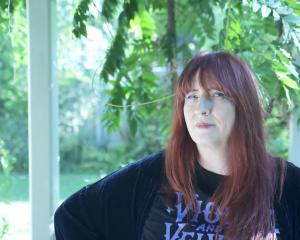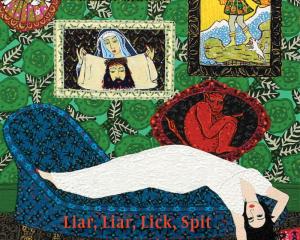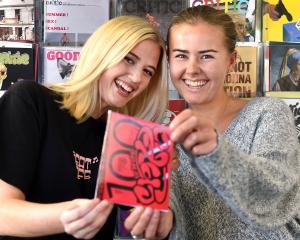
Spending the first month of his Robert Burns Fellowship in lockdown is not quite what Dr John Newton had envisioned.

"It’s a strange time."
Newton moved to Dunedin a month before the lockdown came into force and has settled into a flat with two strangers "who are not strangers now".
Newton, who grew up on a farm at Port Underwood in Marlborough, started writing poetry after deciding in his early teens that was what he wanted to do.
"I was encouraged by a teacher, which helped, and it was something I could do; that I enjoyed."
He studied English and writing at university in "two or three goes".
"Back then, before fees, you used to be able to do that. Then I dug in and became an academic."
Newton taught English for two years at the University of Melbourne and from 1995-2010 at the University of Canterbury.
He then decided to give up academic life after realising that the new direction the university was heading in did not suit him.

So he choose a more "creative and productive life" outside of the academic institution.
However, he was "thrilled" to receive the Robbie Burns Fellowship, which is considered one of the best in the country.
"I think it’s widely acknowledged in the writing community that it is a special fellowship and I’m lucky to have it.
"It’s a great luxury to be back inside the university without the responsibilities some of my colleagues have to carry."
Having creative life has meant Newton has adopted a rather nomadic lifestyle, splitting his time between Christchurch and Wellington.
He has most recently been living and working in Christchurch, writing a book about sculptor Llew Summers, who died last year. Newton had been living in a cottage that Summers had loaned him, and when the sculptor became ill, he took on the job of writing his biography.
"I thought it would repay some of the kindness he showed me."
He also has another book due out this year, Escape Path Lighting, a satirical verse novel that he describes as "a comedy with many targets, not least the ways we try to teach creative writing".
This year, during the fellowship, Newton has planned a book called Where Exactly Are We?, a history of New Zealand writing from 1950s-60s, which will be the second instalment in a planned trilogy, following on from 2017s Hard Frost: Structures of Feeling in New Zealand Literature 1908-1945.
"I’m grateful to have the uninterrupted time that I need to work on a big project. It’s also nice to have the vote of confidence. I’m aware that what I’m doing doesn’t have a mass audience, so it’s nice to know that someone thinks the book is worth investing in."
He says the third instalment will be on New Zealand writing in the 1970s and ’80s.
His other publications include three volumes of poetry, most recently Family Songbook, and another work of literary history, The Double Rainbow: James K. Baxter, Ngati Hau and the Jerusalem Commune (2009).
It is Newton’s first time living in Dunedin and he is looking forward to it once the lockdown ends.
"It’s a shame [to be shut away] because the fellowship does have a strong connection to the community, but we are all doing our bit. Come spring, hopefully, I’ll be able to get out and have a look around."
Writing tips
John Newton’s writing tips. —
- Take advantage of being constrained "If you’re going to be in the same place for weeks on end, make a writing process out of it. Set yourself a small exercise that you can repeat with variations day after day. Put them away and forget what you’ve done. When the lockdown ends, have a look and see what you’ve got."
- Take advantage of your bubble "As a writer it makes all the difference to have an audience. Try writing something to entertain your flatmates. That’s what we’ve been doing in my house — sharing our work together in the evenings. You could all try doing the same task. Write a ghost story, for example. When the Shelleys tried this, Mary Shelley wound up writing Frankenstein!"
- clude three volumes of poetry, most recently Family Songbook, and another work of literary history, The Double Rainbow: James K. Baxter, Ngati Hau and the Jerusalem Commune (2009).












